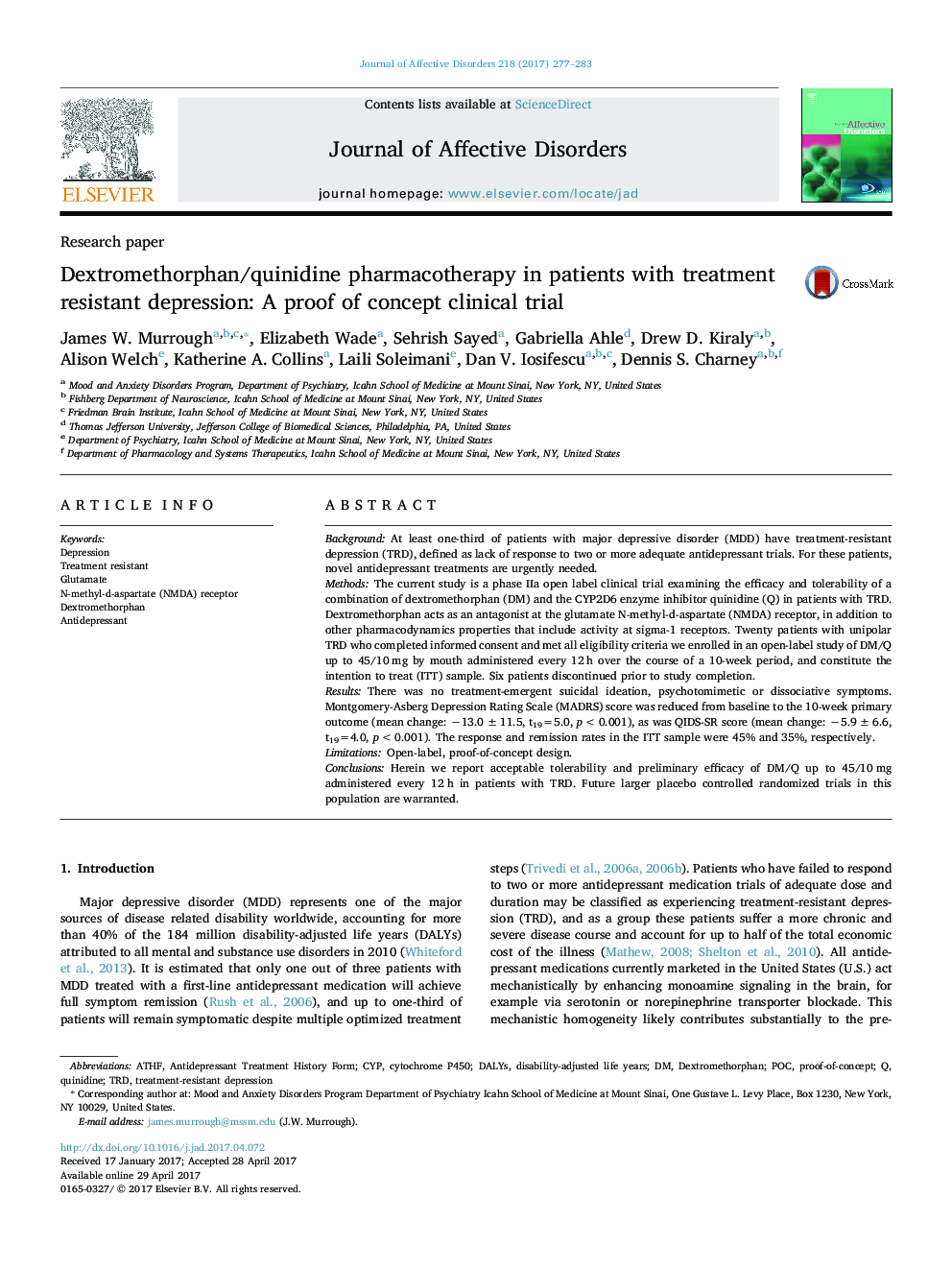| کد مقاله | کد نشریه | سال انتشار | مقاله انگلیسی | نسخه تمام متن |
|---|---|---|---|---|
| 5721957 | 1608107 | 2017 | 7 صفحه PDF | دانلود رایگان |
- Targets for novel antidepressants include the glutamate NMDA and sigma-1 receptors.
- Dextromethorphan displays activity at these receptors and other targets.
- Dextromethorphan plus quinidine (DM/Q) was tested in treatment-resistant depression.
- DM/Q showed acceptable tolerability and preliminary efficacy in this population.
BackgroundAt least one-third of patients with major depressive disorder (MDD) have treatment-resistant depression (TRD), defined as lack of response to two or more adequate antidepressant trials. For these patients, novel antidepressant treatments are urgently needed.MethodsThe current study is a phase IIa open label clinical trial examining the efficacy and tolerability of a combination of dextromethorphan (DM) and the CYP2D6 enzyme inhibitor quinidine (Q) in patients with TRD. Dextromethorphan acts as an antagonist at the glutamate N-methyl-d-aspartate (NMDA) receptor, in addition to other pharmacodynamics properties that include activity at sigma-1 receptors. Twenty patients with unipolar TRD who completed informed consent and met all eligibility criteria we enrolled in an open-label study of DM/Q up to 45/10 mg by mouth administered every 12 h over the course of a 10-week period, and constitute the intention to treat (ITT) sample. Six patients discontinued prior to study completion.ResultsThere was no treatment-emergent suicidal ideation, psychotomimetic or dissociative symptoms. Montgomery-Asberg Depression Rating Scale (MADRS) score was reduced from baseline to the 10-week primary outcome (mean change: â13.0±11.5, t19=5.0, p<0.001), as was QIDS-SR score (mean change: â5.9±6.6, t19=4.0, p<0.001). The response and remission rates in the ITT sample were 45% and 35%, respectively.LimitationsOpen-label, proof-of-concept design.ConclusionsHerein we report acceptable tolerability and preliminary efficacy of DM/Q up to 45/10 mg administered every 12 h in patients with TRD. Future larger placebo controlled randomized trials in this population are warranted.
Journal: Journal of Affective Disorders - Volume 218, 15 August 2017, Pages 277-283
